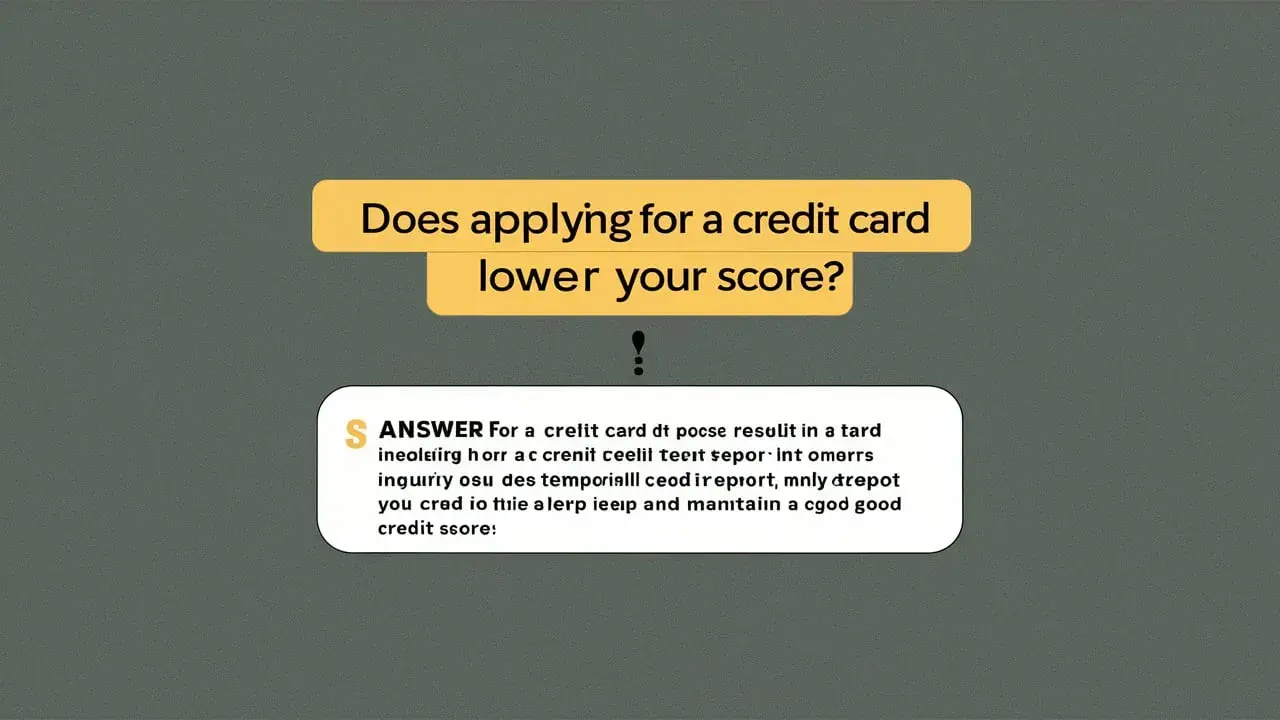Having a low credit score or a limited credit history can make it challenging to get approved for a traditional, unsecured credit card. If you're facing this issue, a secured credit card might be the perfect solution. A secured credit card is a type of credit card that requires you to provide a cash deposit as collateral. This deposit serves as your credit limit, reducing the risk for the lender and increasing your chances of approval. At Credit Repair Ease, we understand the importance of rebuilding credit, and this guide will walk you through everything you need to know about getting a secured credit card.
Understanding Secured Credit Cards
Before diving into the steps on how to obtain a secured credit card, let's clarify what they are and why they are beneficial:
- Definition: A secured credit card is backed by a cash deposit that acts as your credit line.
- Purpose: It's designed to help individuals with bad credit or limited credit history build or rebuild their credit score.
- How it Works: You deposit a certain amount of money with the card issuer. This amount typically becomes your credit limit. You then use the card like a regular credit card, making purchases and paying your bills on time.
- Reporting to Credit Bureaus: Secured credit card issuers report your payment activity to the major credit bureaus (Experian, Equifax, and TransUnion), which helps you establish or improve your credit history.
Benefits of Using a Secured Credit Card
Secured credit cards offer several advantages for those with credit challenges:
- Improved Approval Odds: Easier to get approved for, even with bad credit or no credit history.
- Credit Building: Responsible use helps build or rebuild your credit score over time.
- Access to Credit: Provides access to credit, allowing you to make purchases and manage your finances more easily.
- Graduation Potential: Many secured cards offer the potential to graduate to an unsecured card after demonstrating responsible credit use.
Steps to Getting a Secured Credit Card
Follow these steps to increase your chances of getting approved for a secured credit card:
1. Assess Your Credit Situation
Before applying for any credit card, it's crucial to understand your current credit situation. This involves checking your credit report and credit score.
- Obtain Your Credit Report: You can get a free copy of your credit report from each of the three major credit bureaus (Experian, Equifax, and TransUnion) at AnnualCreditReport.com.
- Review Your Credit Report: Carefully review your credit report for any errors, inaccuracies, or outdated information. Dispute any errors you find with the credit bureau directly.
- Check Your Credit Score: You can check your credit score for free through various online platforms, credit card issuers, or banks.
Understanding your credit score will give you a realistic view of your approval chances and help you choose the right secured credit card.
2. Research and Compare Secured Credit Cards
Not all secured credit cards are created equal. It's important to research and compare different options to find the one that best suits your needs.
- Interest Rates (APR): Compare the annual percentage rates (APRs) of different secured credit cards. While APR might not be your primary concern when building credit, it's still important to consider, especially if you plan to carry a balance.
- Fees: Look for cards with minimal fees, such as annual fees, monthly fees, or application fees. Some secured cards have no annual fees, which can save you money.
- Credit Limit: Check the minimum and maximum deposit requirements for the secured card. Make sure you can afford the deposit and that the credit limit is sufficient for your needs.
- Reporting to Credit Bureaus: Ensure that the card issuer reports your payment activity to all three major credit bureaus. This is essential for building your credit.
- Graduation to Unsecured Card: See if the card offers a pathway to graduate to an unsecured credit card after a period of responsible use. This can be a great long-term benefit.
- Rewards Programs: Some secured cards offer rewards programs, such as cash back or points, on purchases. While rewards shouldn't be your primary focus, they can be a nice bonus.
3. Gather the Necessary Documents
Before applying for a secured credit card, gather the necessary documents to streamline the application process.
- Proof of Identity: You'll typically need a valid government-issued photo ID, such as a driver's license or passport.
- Proof of Address: You may need to provide proof of your current address, such as a utility bill or bank statement.
- Social Security Number (SSN): You'll need to provide your Social Security Number.
- Bank Account Information: You'll need your bank account information to fund your security deposit.
4. Complete the Application
Once you've chosen a secured credit card and gathered the necessary documents, you can complete the application.
- Online Application: Most secured credit card issuers offer online applications, which are typically quick and easy to complete.
- Provide Accurate Information: Fill out the application carefully and accurately. Double-check all the information before submitting it.
- Be Honest: Be honest in your application. Don't try to misrepresent your income or employment status.
5. Fund Your Security Deposit
After your application is approved, you'll need to fund your security deposit.
- Deposit Amount: The amount of your security deposit will determine your credit limit. Most secured cards require a minimum deposit of $200 to $300.
- Payment Methods: You can typically fund your deposit using a bank account transfer, a cashier's check, or a money order.
- Funding Deadline: Make sure to fund your deposit within the specified timeframe to activate your secured credit card.
6. Use Your Secured Credit Card Responsibly
Once you have your secured credit card, it's crucial to use it responsibly to build or rebuild your credit.
- Make Purchases: Use your secured credit card for small, everyday purchases.
- Stay Below Your Credit Limit: Keep your credit utilization low, ideally below 30% of your credit limit. This means if your credit limit is $500, try to keep your balance below $150.
- Pay Your Bills On Time: Always pay your bills on time, every month. Late payments can negatively impact your credit score.
- Pay Your Balance in Full: If possible, pay your balance in full each month to avoid interest charges.
- Monitor Your Credit Report: Regularly monitor your credit report to track your progress and identify any potential errors or issues.
7. Graduating to an Unsecured Credit Card
The ultimate goal of using a secured credit card is to graduate to an unsecured credit card. After demonstrating responsible credit use for a period of time (typically 6-12 months), you may be eligible to have your security deposit returned and your account converted to an unsecured credit card.
- Check Graduation Requirements: Contact your card issuer to inquire about the requirements for graduating to an unsecured card.
- Maintain Good Credit Habits: Continue to use your card responsibly, making on-time payments and keeping your credit utilization low.
- Request Graduation: Once you meet the requirements, you can request to have your account converted to an unsecured card.
- Apply for an Unsecured Card: If your secured card doesn't offer graduation, consider applying for a new unsecured card after building a positive credit history.
Choosing the Right Secured Credit Card: Top Options
Several secured credit cards are available, each with its own unique features and benefits. Here are a few top options to consider:
- Discover it® Secured Credit Card: Offers cash back rewards on purchases and the potential to graduate to an unsecured card with good credit habits.
- Capital One Secured Mastercard®: Requires a minimum deposit of $200, but some customers may qualify for a lower deposit based on their creditworthiness.
- OpenSky® Secured Visa® Credit Card: Doesn't require a credit check, making it a good option for those with very bad credit or no credit history.
- Self - Visa® Secured Credit Card: Unique in that it requires building credit through a credit builder loan first. Offers a pathway to securing the card and building credit simultaneously.
Research and compare these options to find the secured credit card that best fits your individual needs and financial situation. Always read the fine print and understand the terms and conditions before applying.
Common Mistakes to Avoid
When using a secured credit card to build credit, it's important to avoid common mistakes that can hinder your progress:
- Missing Payments: Missing payments is one of the biggest mistakes you can make. Late payments can significantly lower your credit score.
- Maxing Out Your Credit Limit: Maxing out your credit limit can negatively impact your credit utilization ratio, which can also lower your credit score.
- Applying for Too Many Cards at Once: Applying for multiple credit cards in a short period of time can result in multiple hard inquiries on your credit report, which can lower your score.
- Closing Your Secured Card Prematurely: Closing your secured card before you've established a positive credit history can hurt your credit score, especially if it's your oldest credit account.
- Ignoring Your Credit Report: Failing to monitor your credit report can prevent you from identifying errors or inaccuracies that could be negatively impacting your credit score.
By avoiding these common mistakes and using your secured credit card responsibly, you can significantly improve your credit score and achieve your financial goals.











